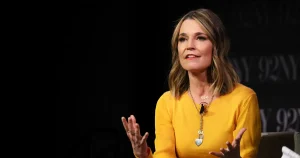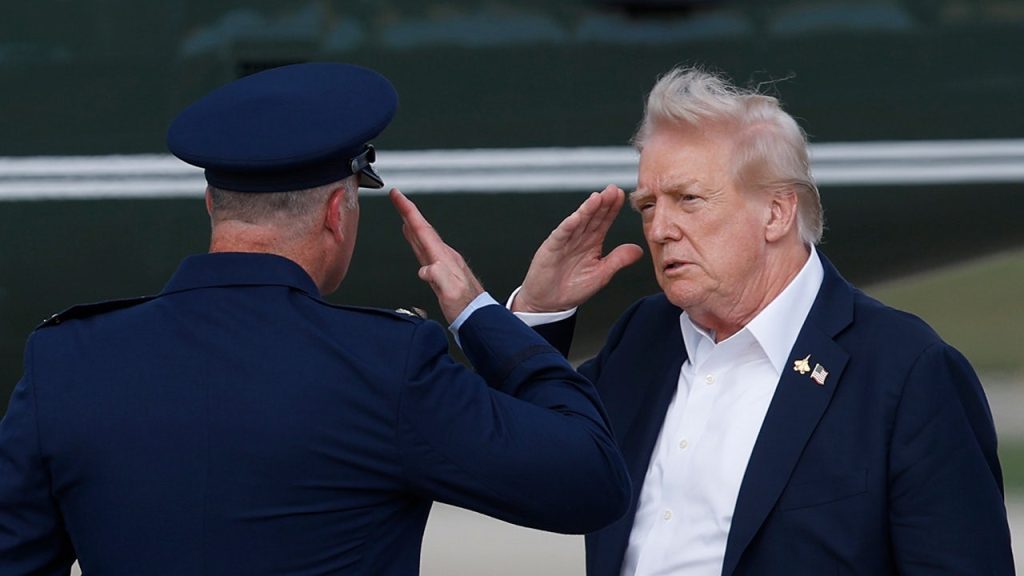Trump Reschedules Meeting with Congressional Leaders as Government Shutdown Deadline Approaches
President Donald Trump has arranged a bipartisan meeting with congressional leaders for Monday, as the nation faces the looming threat of a government shutdown at the end of the month. This meeting comes after Trump canceled a previously scheduled discussion with Democratic leaders last week, citing what he characterized as “unserious and ridiculous demands.” The rescheduled meeting will include Senate Minority Leader Chuck Schumer and House Minority Leader Hakeem Jeffries, both Democrats, alongside Republican leaders House Speaker Mike Johnson and Majority Leader John Thune. With the September 30 deadline rapidly approaching, this high-stakes discussion represents perhaps the last opportunity for the nation’s political leadership to find common ground and prevent a disruptive shutdown.
In a joint statement released Saturday, Democratic leaders Schumer and Jeffries expressed their willingness to negotiate, emphasizing that “Democrats will meet anywhere, at any time and with anyone to negotiate a bipartisan spending agreement that meets the needs of the American people.” Their statement highlighted the urgency of the situation, noting that “time is running out” to avoid a government shutdown and address what they termed “the Republican healthcare crisis.” The timing is particularly challenging as the Senate isn’t expected to return until September 29 following the Jewish New Year, while the House is scheduled to remain out of session until after the funding deadline has passed. This compressed timeline leaves little room for extended negotiations or legislative maneuvering.
The path to this rescheduled meeting has been fraught with partisan tensions. When canceling the previous meeting, Trump took to his Truth Social platform to criticize Schumer and Jeffries for pushing what he called “radical Left policies that nobody voted for,” concluding that no meeting “could possibly be productive.” This cancellation followed a letter from the Democratic leaders that placed responsibility for a potential shutdown on Trump and congressional Republicans. They specifically criticized the Trump-backed short-term extension as “dirty,” claiming it contained partisan policy riders and continued what they described as “the Republican assault on healthcare” by ignoring expiring Affordable Care Act premium subsidies and potentially forcing healthcare facilities across the country to close.
The core of the dispute centers around competing visions for healthcare funding and policy. Trump defended his approach, arguing that the Democratic continuing resolution would repeal nearly $1 trillion in Medicaid cuts from what he called his “Big, Beautiful Bill” and would end his proposed $50 billion rural hospital fund. “We must keep the Government open, and legislate like true Patriots rather than hold American Citizens hostage,” Trump stated, emphasizing his desire to keep the “now thriving Country” operational. He indicated his willingness to meet with Democratic leaders only if they agreed to certain principles outlined in his statement, concluding that “the ball is in your court” and encouraging them to “DO THE RIGHT THING!”
House Speaker Mike Johnson revealed that he had encouraged Trump to cancel the previous meeting, suggesting that productive discussions could only occur after Democrats completed “the basic governing work of keeping the government open.” Johnson characterized the proposed meeting as “a waste of [Trump’s] time” until Democratic leaders fulfilled their fundamental responsibilities. This perspective highlights the fundamental disagreement between the parties about who bears responsibility for ensuring government continuity. Democrats argue that Republicans will “bear responsibility for another painful government shutdown” due to GOP leadership’s refusal to engage in meaningful bipartisan talks, while Republicans counter that Democrats are making unreasonable demands and failing to fulfill their basic governing duties.
Without action from Congress and the President, a government shutdown will begin at 12:01 a.m. ET on Wednesday, October 1. This impending deadline creates enormous pressure on Monday’s meeting to produce results. The situation demonstrates the increasingly polarized nature of American governance, where even fundamental operations like keeping the government funded have become battlegrounds for partisan policy disputes. Healthcare funding, particularly related to the Affordable Care Act and Medicaid, has emerged as a central point of contention. As the clock ticks down, the American people wait to see whether their elected leaders can set aside enough of their differences to fulfill their most basic responsibility—keeping the government operational—or whether political calculations and policy disagreements will once again result in a disruptive and costly government shutdown.














